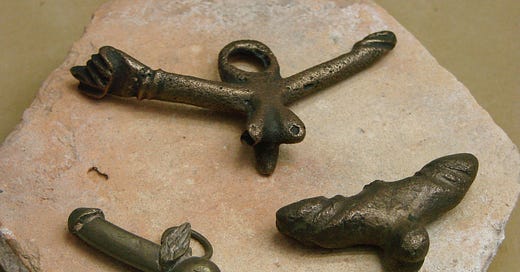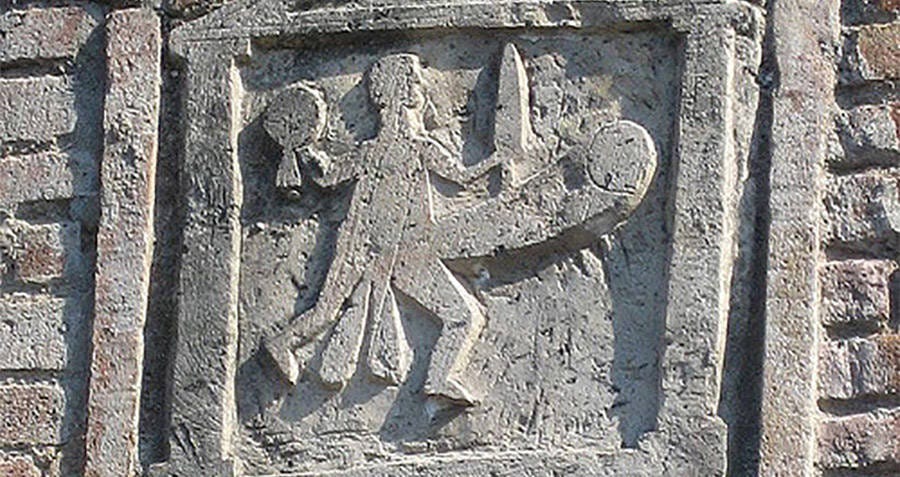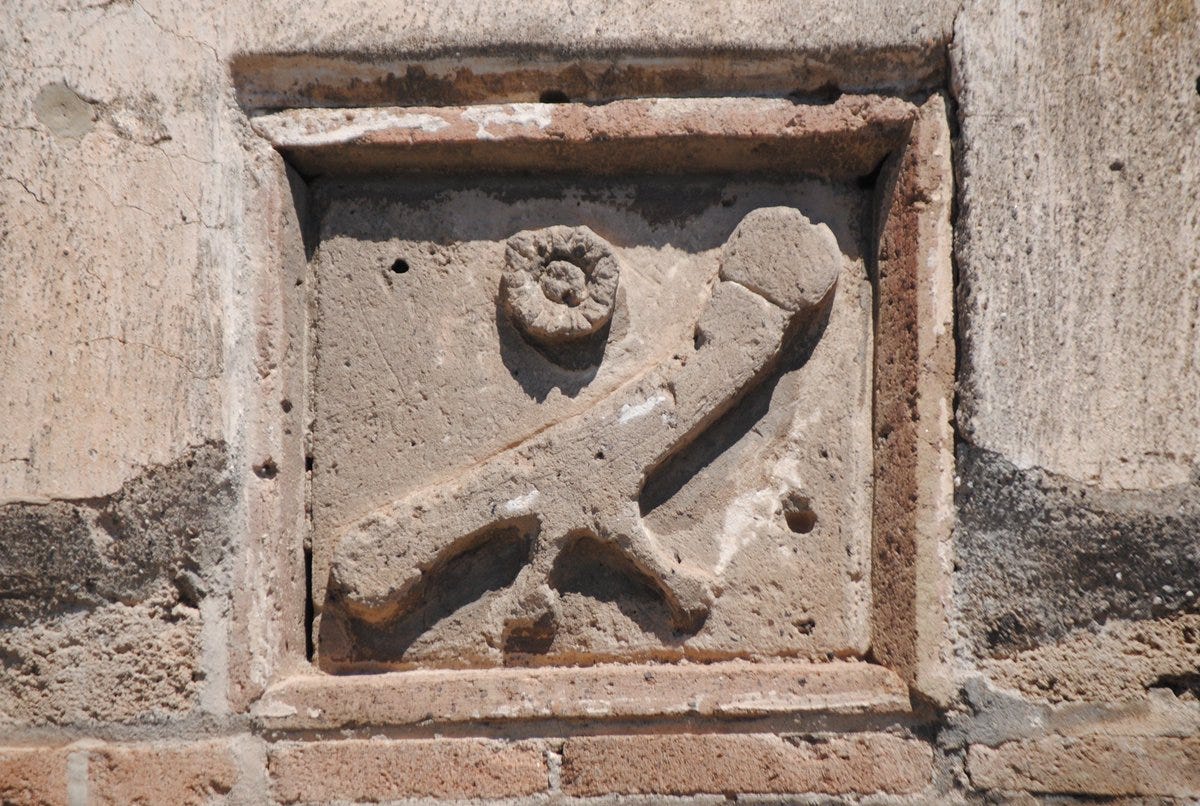Why Did the Ancient Romans Draw Phalluses on Everything?
In ancient Rome, a Phallus represented much more than just genitalia or juvenile humor.
Was It Just Juvenile Humour?
Life as a soldier in the Roman legion is always assumed to be thrilling, death-defying, and constantly on the move with participating in massive military campaigns for subduing people throughout Europe and the Near East.
While this is true but not always. Roman soldiers did have a lot of free time in their hands and they utilized this free time playing board games like Ludus Latrunculorum(a Roman game of strategy and direct battle) to drawing penis graffiti on the walls. Yes, you read it right, penises. The Romans had an obscene obsession with penises.
And even when they are working on crucial installations like the Hadrian’s Wall, a defensive fortification in Roman Britannia to strengthen frontier borders, archaeologists have found more than 57 etchings of male genitalia scattered across the length of the Hadrian's Wall. As Mike Collins, the inspector of ancient monuments for Hadrian’s Wall tells us.
“In the Roman era, the penis symbol was common and more a general symbol of good luck”
Indeed, the phallus (or the erect penis) symbol has been found everywhere throughout the length and breadth of the empire, from the city of Pompeii which is peppered with phallus symbols everywhere to other parts of the Roman empire replete with graffiti scratchings, carvings, mosaics, frescoes, statues, wind chimes, necklaces to even amulets around a child’s neck.
In ancient Rome, a penis represented so much more than just genitalia or juvenile humor.
The Penis Obsession in Ancient Rome
We all know that the Romans loved their deities. They had a god for everything. A god for bees, a god for love, a goddess for bread breaking, a god for mowing fields, and so on. So it is no wonder that they have a god for the phallus also and he was called Fascinus.
Fascinus was represented as a phallus in multiple forms and mediums. The Romans used to put a phallus in everything from mosaic art, to jewelry also as graffiti in important constructions to ward off evil. A phallus with wings. A phallus with feet and even a double phallus to double the potency.
And it was not only about fertility and sex. A form of Fascinus was also seen as the god of navigation and his enormous penis was the guiding force for mariners and sailors. Another form was used as direction markers as seen in the streets of Pompeii.
The stone penises of Pompeii are one of the earliest known forms of advertising. These phalluses served as arrows, and if you follow the arrows, you may end up at one of the city’s many cafes, hotels, or even brothels.
The Penis Was a Powerful Amulet
And both children and adults used to wear amulets shaped like flying penises, called fascinum to protect against sickness. In the ancient world infant mortality was very high with up to half of all Roman children dying before the age of five. This made all the mothers anxious and willing to try every possible charm to protect their children. The ancient Roman boys and girls also wore something called bullae, to indicate their social status (slaves or free people), and these bullae were often crafted like giant penises to indicate their power and influence.
As the American classicist researcher Anthony Philip Corbeill tells us.
“The sexual energy of the phallus was tied directly to its power in reproduction. The fertile power of a phallus, it was thought, would keep them safe.”
The Penis Was Also Used in War
In the war, the penis was a symbol of absolute domination and victory. Ancient Romans used rape as a weapon to demoralize their enemies and any Roman soldiers who had allowed themselves to be penetrated by an enemy would be sentenced to death.
As Pliny, the Elder noted in his work Natural History.
“Infants are under the especial guardianship of the god Fascinus, the protector, not of infants only, but of generals as well. This means that when a general was parading through Rome in triumph, surrounded by booty and slaves, he’d likely also have a fascinum hanging on his chariot. It is the image of this divinity that is attached beneath the triumphant car of the victorious general, protecting him, like some attendant physician, against the effects of envy.”
And today the god ‘fascinus’ lives in the English language as the word “fascinating’. The word ‘fascinating’ originates from fascinus’ ability to ‘bewitch’ all those who look at him (or more precisely his organ). So next time if you are fascinated or something, you may be inadvertently thinking that it looks like a penis.
English is a fascinating language. Isn’t it?








Great read! Someone stole my fascinating joke so that's all I have to say then!
This is so fascinating! Wait…